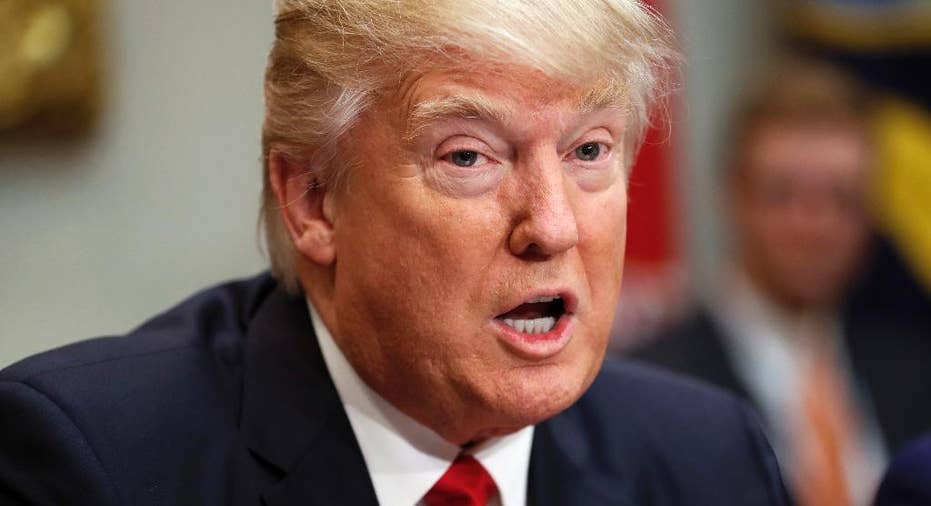Trump takes first step to scale back financial regulations

WASHINGTON – President Donald Trump is taking his first steps aimed at scaling back financial services regulations.
The president will sign an executive order Friday that will direct the Treasury secretary to review the 2010 Dodd-Frank financial oversight law, which reshaped financial regulation after the 2008-09 financial crisis.
A senior White House official outlined the measures in a background briefing with reporters Thursday.
Trump pledged during the campaign to repeal and replace the law, which also created the Consumer Financial Protection Bureau.
"Dodd-Frank is a disaster," Trump said earlier this week during a meeting with small business owners. "We're going to be doing a big number on Dodd-Frank."
The order won't have any immediate impact. But it directs the Treasury secretary to consult with members of different regulatory agencies and the Financial Stability Oversight Council and report back on potential changes.
That likely includes a review of the CFPB, which vastly expanded regulators' ability to police consumer products — from mortgages to credit cards to student loans.
Trump administration officials, like other critics, argue Dodd-Frank did not achieve what it set out to do and portray it as an example of massive government over-reach.
Trump will also sign a presidential memorandum Friday that instructs the Labor Department to delay implementing an Obama-era rule that requires financial professionals who charge commissions to put their clients' best interests first when giving advice on retirement investments.
The rule, which was set to take effect in April, will be delayed for 90 days while it's reviewed.
The so-called "fiduciary rule" was aimed at blocking financial advisers from steering clients toward investments with higher commissions and fees that can eat away at retirement savings.
Critics argue the rule limits retirees' investment choices by forcing asset managers to steer them to the lowest-risk options.



















